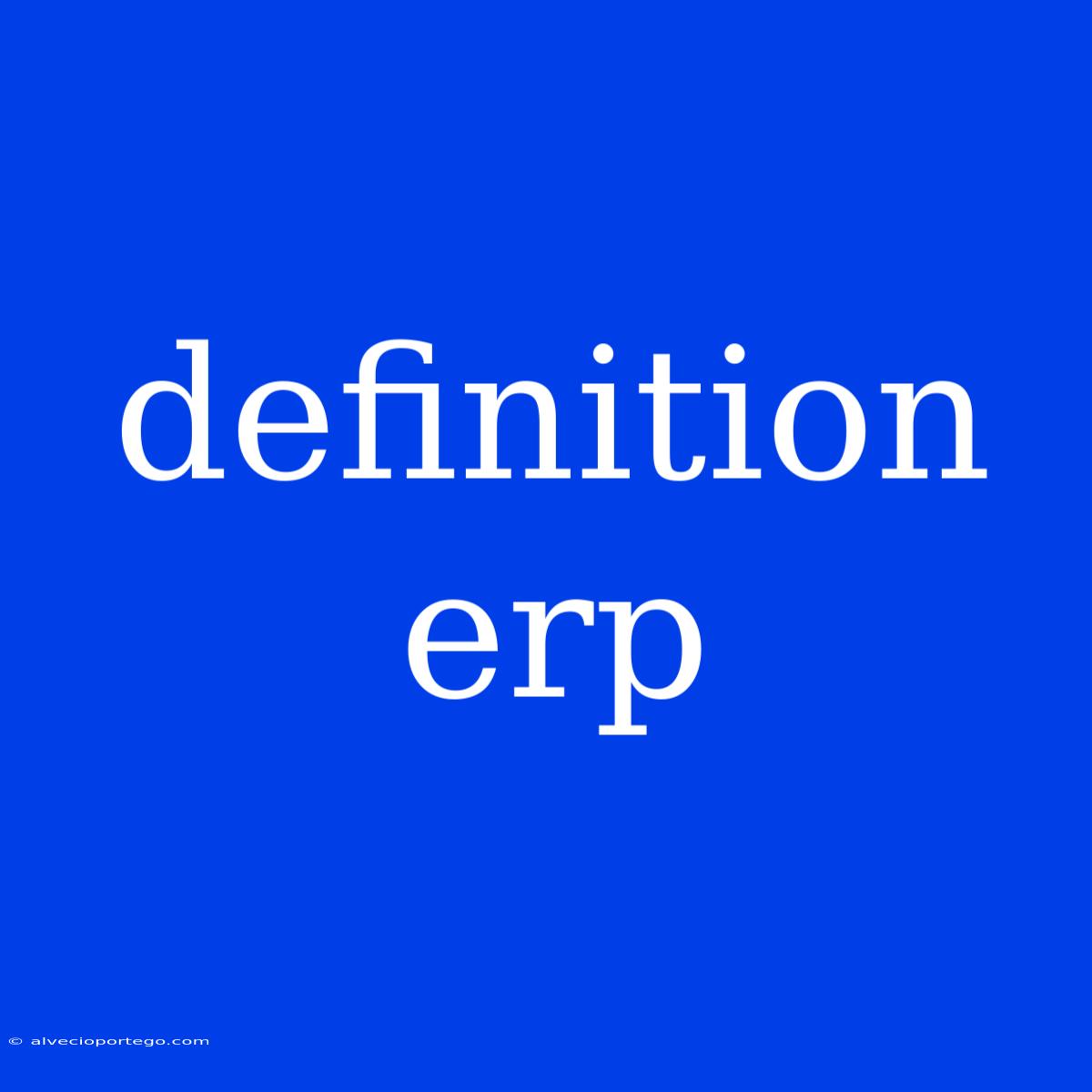What is ERP? A Comprehensive Definition
Enterprise Resource Planning (ERP) is a business process management software that integrates all the core functions of a company into a single, centralized system. From finance and accounting to human resources, supply chain management, and customer relationship management, ERP software provides a holistic view of the organization's operations.
Key Features and Benefits of ERP:
- Centralized Data: ERP consolidates all business data into one central repository, eliminating data silos and ensuring consistent information across departments.
- Improved Efficiency: Automated processes and real-time data visibility streamline operations, reduce manual tasks, and improve overall efficiency.
- Enhanced Decision-Making: Access to real-time data and analytics enables informed decision-making, leading to better planning and strategic initiatives.
- Increased Visibility: ERP provides a comprehensive view of the entire business, allowing managers to track performance, identify bottlenecks, and make informed adjustments.
- Improved Collaboration: Integrated workflows and communication tools facilitate seamless collaboration between departments, improving team efficiency and communication.
How does ERP Work?
ERP software typically comprises a suite of modules that cater to specific business functions. Each module is designed to manage a particular aspect of the company, such as:
- Financial Management: Tracks financial transactions, manages budgets, and provides financial reporting.
- Human Resources: Handles payroll, benefits, recruitment, training, and performance management.
- Supply Chain Management: Manages procurement, inventory, logistics, and production.
- Customer Relationship Management (CRM): Manages customer interactions, sales, and marketing.
- Manufacturing: Provides tools for planning, scheduling, and controlling manufacturing processes.
These modules are interconnected, allowing information to flow seamlessly between them. This integration eliminates data redundancies and improves efficiency by providing a unified view of the entire business.
Who Needs ERP?
ERP systems are valuable for businesses of all sizes across various industries. They are particularly beneficial for companies that:
- Experience data silos and inconsistencies
- Struggle with inefficient processes
- Require improved decision-making capabilities
- Seek enhanced visibility and control over their operations
- Aim to improve collaboration and communication
Implementing ERP
Implementing ERP requires careful planning, implementation, and ongoing support. Businesses need to:
- Identify their specific business needs and challenges.
- Choose an ERP solution that aligns with their requirements.
- Develop a comprehensive implementation plan.
- Train employees on the new system.
- Provide ongoing support and maintenance.
By carefully considering these factors, businesses can leverage the power of ERP to streamline their operations, improve efficiency, and achieve their strategic goals.
In conclusion, ERP is a powerful tool that can transform a business's operations. By integrating core functions and providing real-time data visibility, ERP systems enable organizations to operate more efficiently, make informed decisions, and ultimately, drive growth.

